
We knew the day before that it was going to happen. The mare, Quieta, bred by us, was first-time pregnant and showed all the classic signs of an impending birth. Due to the sleet, we kept her in the barn on Christmas Eve. But she very much resented being removed from her herd and angrily paced all night. By Christmas morning, she let us know she was very, very done with “indoor” living.
So, after presents were unwrapped, coffee consumed, and we had eaten the ham and eggs breakfast that Jill had made for the family, replete with homemade, wood-stove cooked bread, we took Quieta back up to the mare and foal pasture.
All the young foals were ecstatic to have Auntie Quieta back, and she settled right down to a good feed about noon time. Despite her keen appetite, her body told us it was almost time, so we checked back a few times between noon and three PM. Jill remembered that her dam, Flor, always delivers late afternoon - and sure enough, when we checked on her at about 3:30 PM - she was delivering!
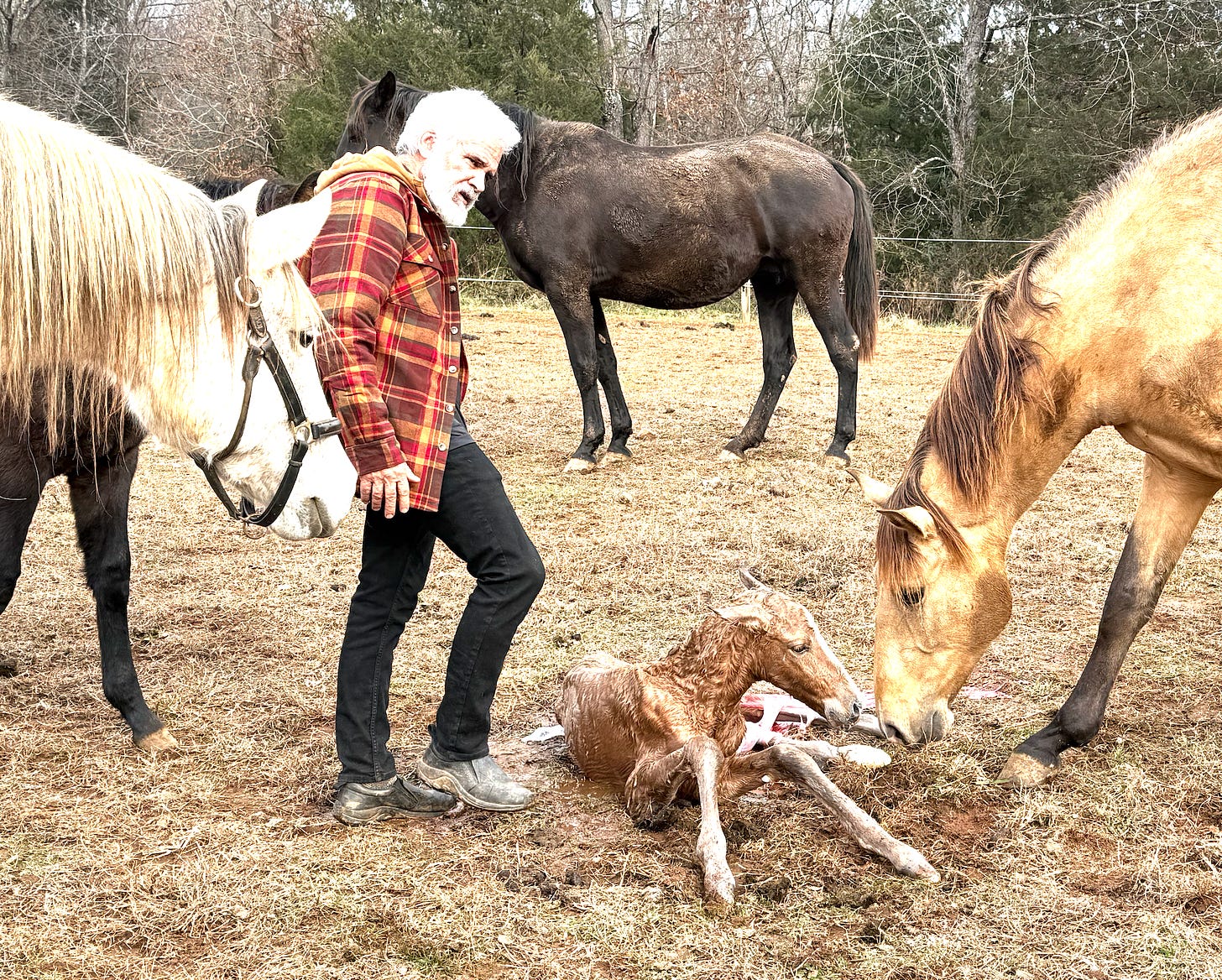
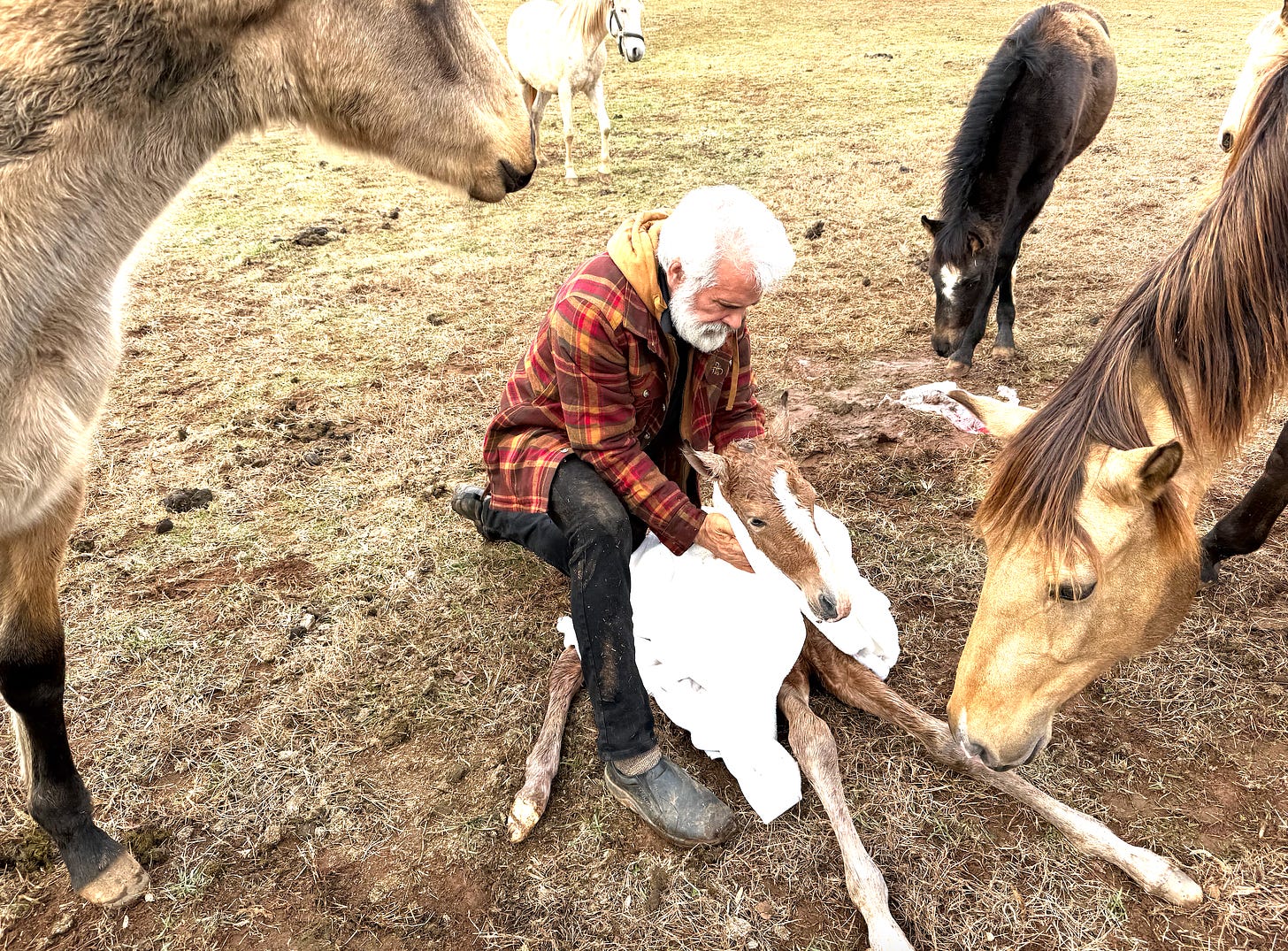
In utero, the foal’s hooves are soft and look like a squid - this protects the dam’s uterus from damage. When the foal stands up and walks around within an hour or so, those little squidlike projections (“foal fingers”) slough off.
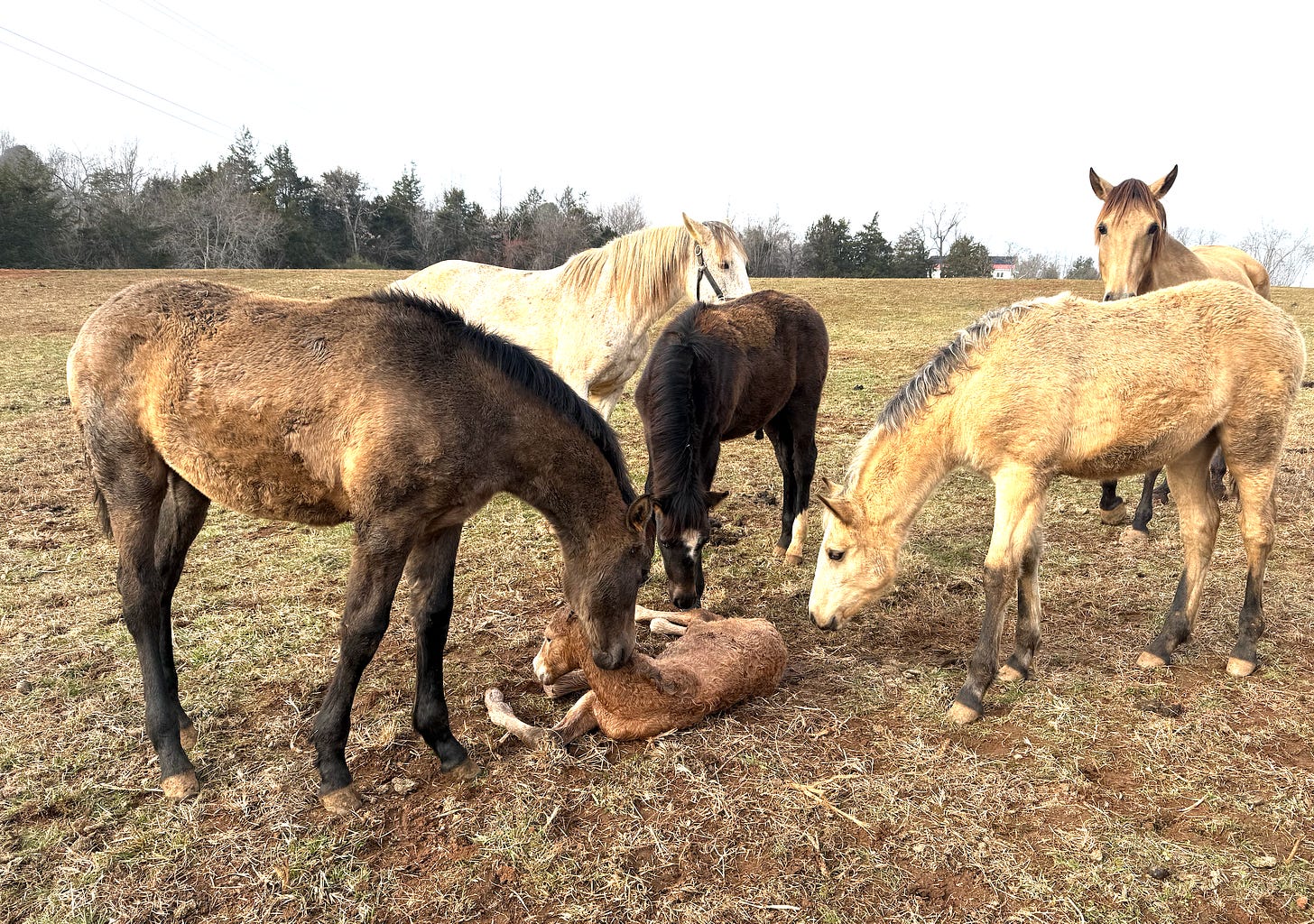
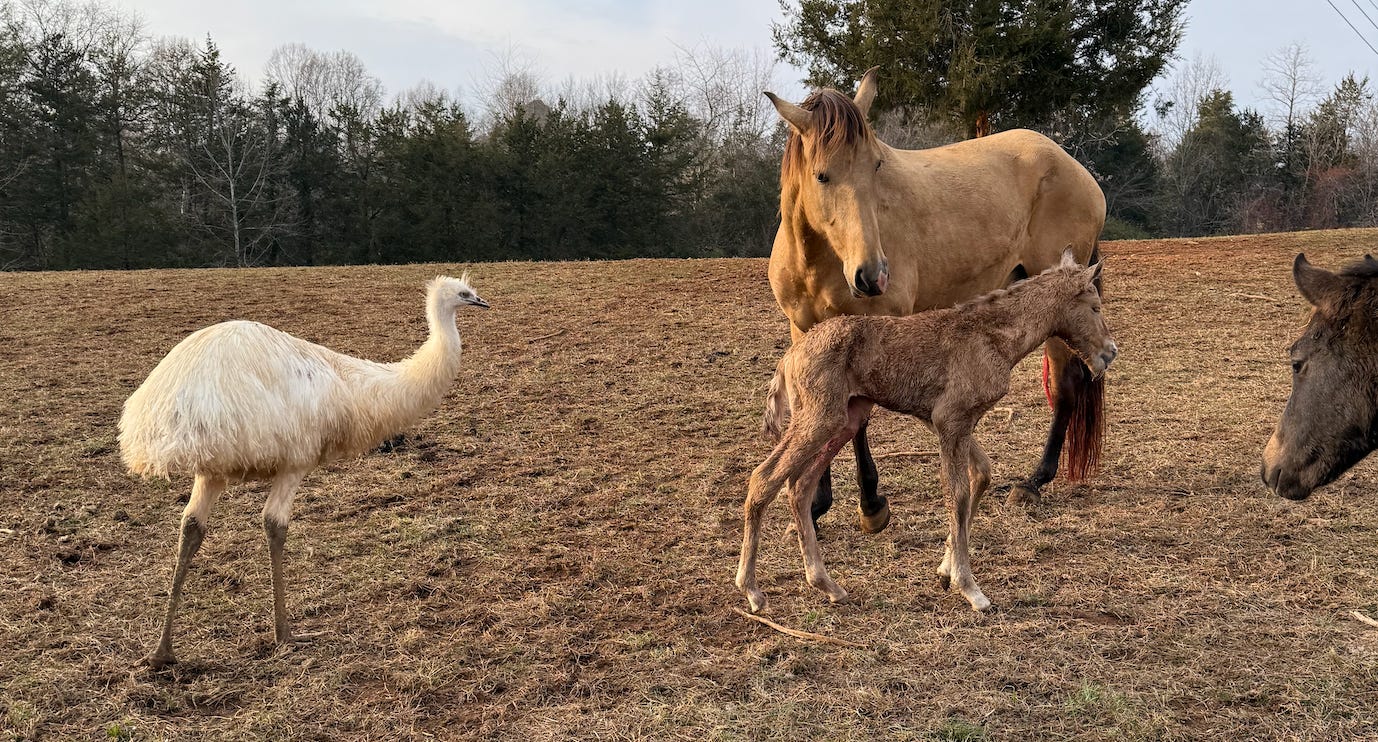
We spray the umbilicus with disinfectant, check to make sure that all his parts are in place - give him an enema (they are often constipated when firstborn, which can lead to significant complications).
Within an hour, he figures out where the milk dispenser is. So we don’t have to bottle feed the colostrum.
After much back and forth, we named the little guy Velocity (Val for short).
As it began to get dark, we moved Quieta and Velocity into the barn for the night. Where she immediately settled down, or at least as much as any new mother ever does.
Then we went back to the house for wood-stove cooked pizza, as we had the big dinner the night before, and the grandkids really wanted pizza.
Just like Quieta’s mother Flor, Quieta retained the placenta, which required injections of a muscle relaxant and oxytocin to help her body expel it. If the placenta stays in too long, a retained placenta can kill a mare quickly due to sepsis (a systemic bacterial infection). We also began antibiotics and checked on the mare and foal every few hours throughout the night.
By morning, the placenta still hadn’t passed - so we got more directions from our wonder farm Vet, Dr. Robinson. After more injections, she finally passed the placenta!
After all the health checks, pets, cuddles, and love, Val is pretty much in our pockets. Quieta is a “homebred” for us - and therefore she is one of the family and has no issues with us handling the little guy…
However, although stoic about it, Quieta is getting pretty tired of being periodically poked by needles.
Baby horses love to mutually groom - it is one of their first reciprocal acts. Horses are very social - and mutual grooming is a big part of that social structure.
For Jill and I, this was a pretty incredible gift. What made it even more unique was the two Christmases ago, we had another foal born on Christmas day! We only have, on average, six foals born a year - so what are the odds of that?
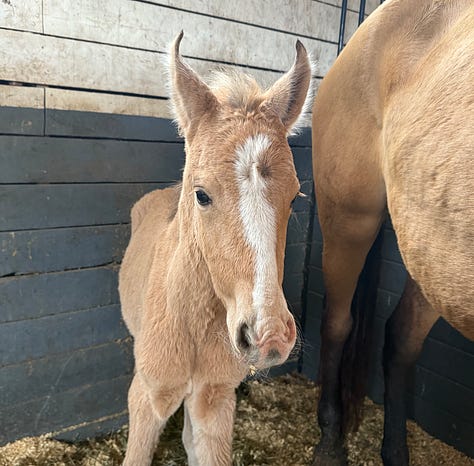
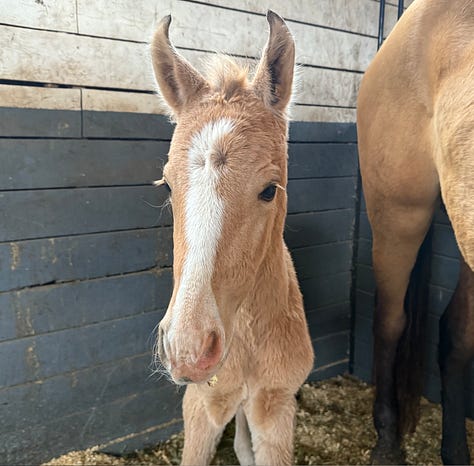
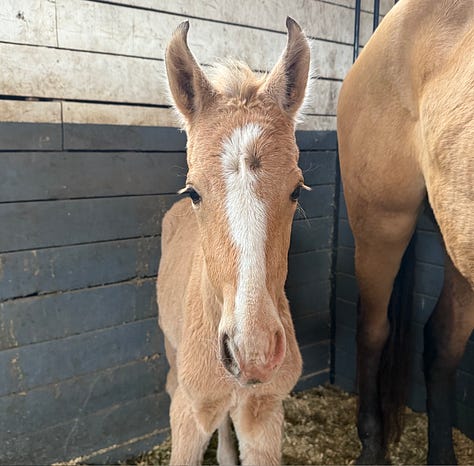
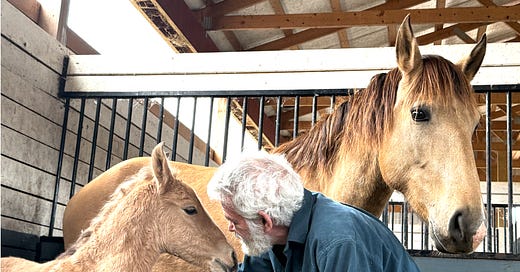



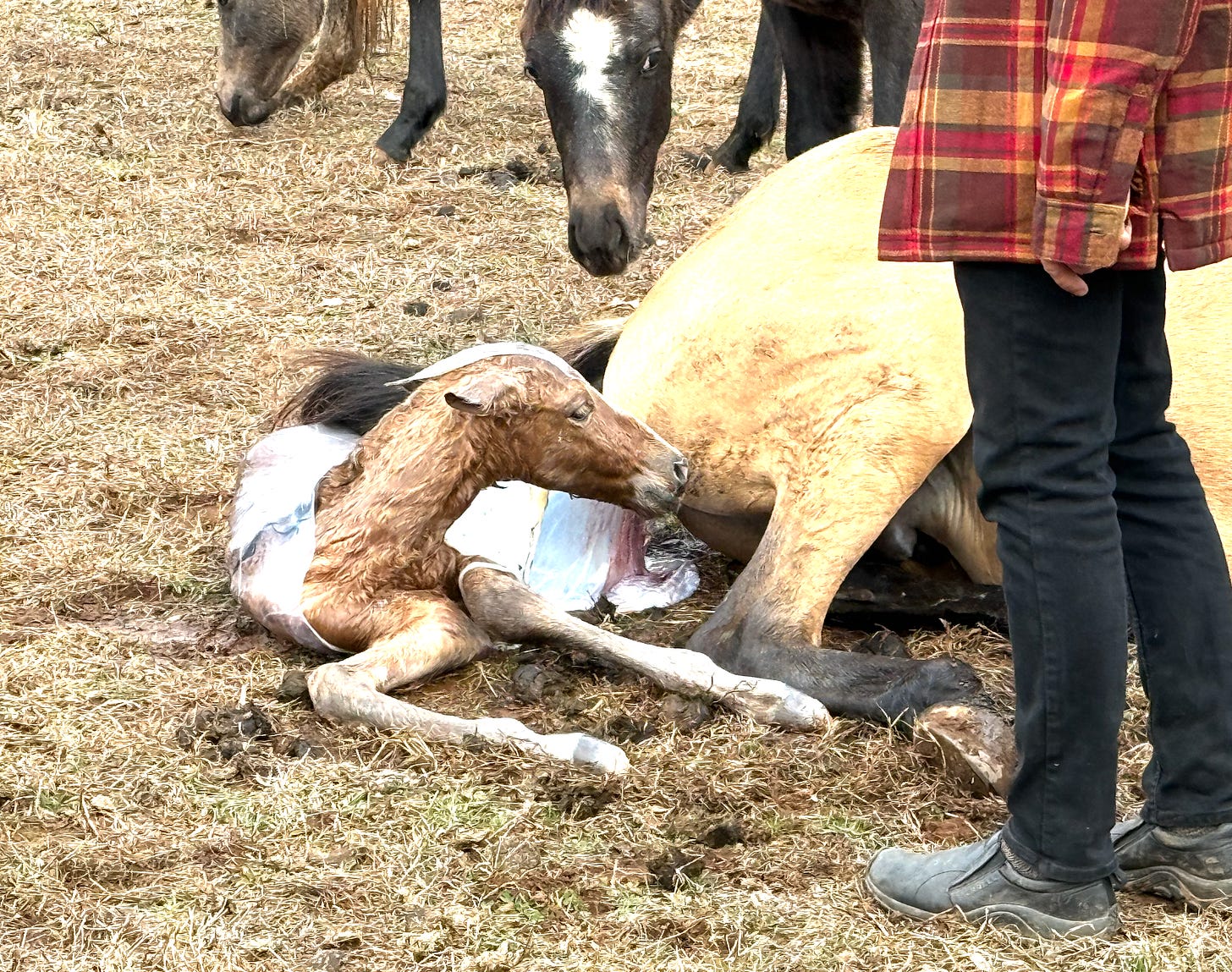
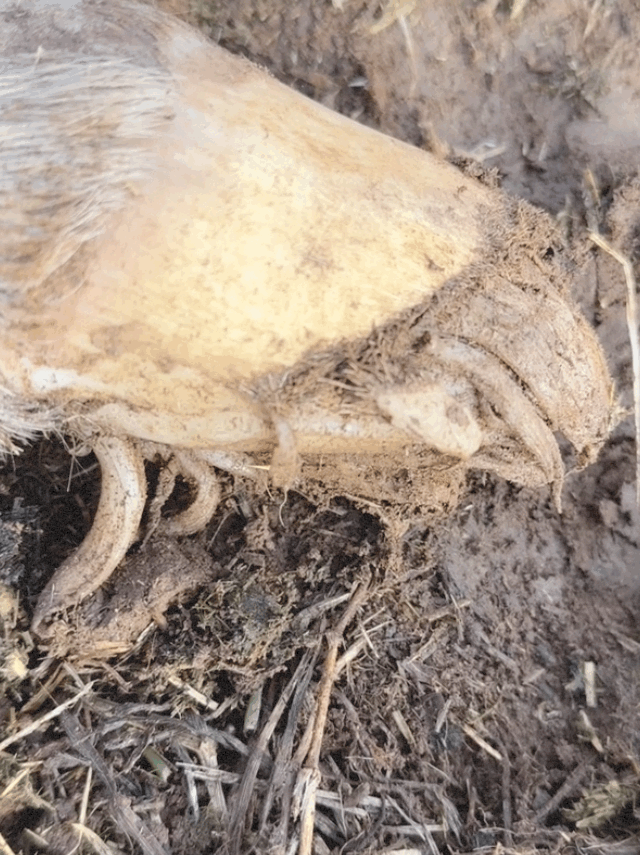






Congratulations! 'Christmas births' remind us of the gift of *hope, peace, love and joy* that our Messiah brought. Maranatha!
A beautiful story to share♥️🎄